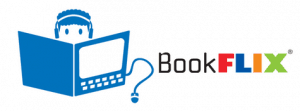calsfoundation@cals.org
Local Students Find Their Place in History at the CALS Roberts Library Research Room
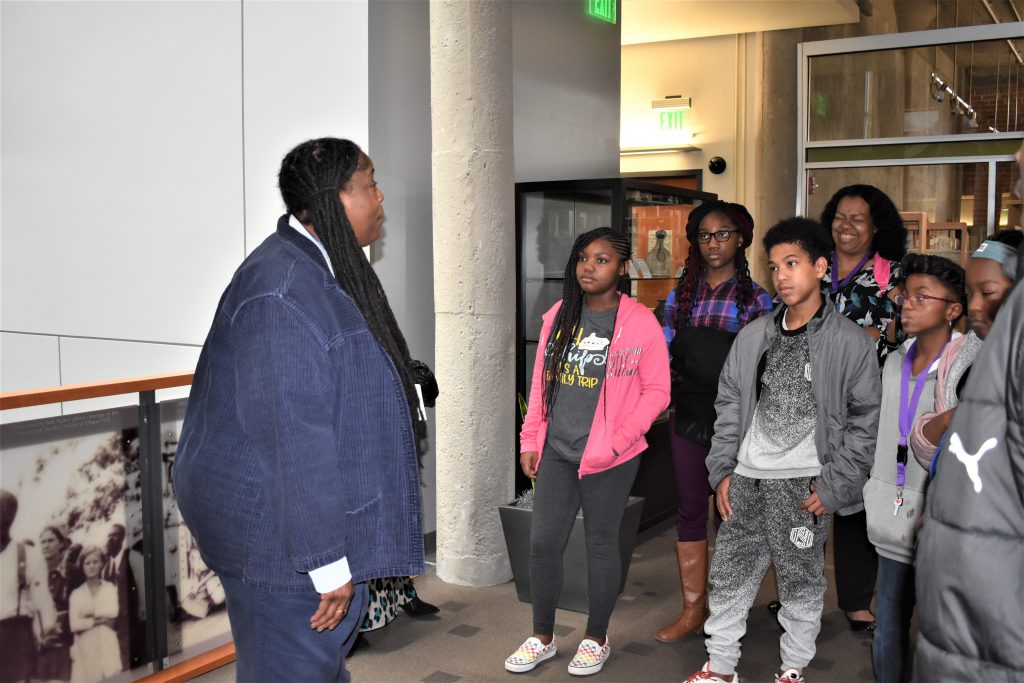
The first way historians often try to reach young people is to show them that history is not just a dusty portrait of a politician on the wall or a dry recitation of dates and battles. History comes alive for individuals who realize that history is a mirror—a mirror in which their own images reflect all the past stories of light and shadow that have made them who they are today. When young people learn that they are connected by story, blood, and shared trials with their own ancestors, they can see themselves in history’s mirror for the first time. And when students learn that they are a part of the story, they also see why larger historical events matter in their own lives. Instead of seeing themselves as isolated cells existing only in the present digital moment, they begin to understand past societies as a network of communities made up of individuals like themselves. And that understanding brings empowerment. Students who connect to their historical mirror learn that yesterday’s apparently insoluble problems were solved by individuals acting in community, and, similarly, today’s dilemmas can also be solved by unified effort and choices that begin with the individual in the mirror.
The mission of empowering young people with their history is a central project of the CALS Roberts Library, supported by an archive of genealogical and historical resources.
The primary sources and local history resources in the Roberts Library Research Room have teaching power beyond classroom textbooks, which is why teachers bring their students here on research trips.
Recently, Mills University Studies High School sent its Intermediate Television Production class to the Research Room for a special research project designed by teacher Raven Harris.
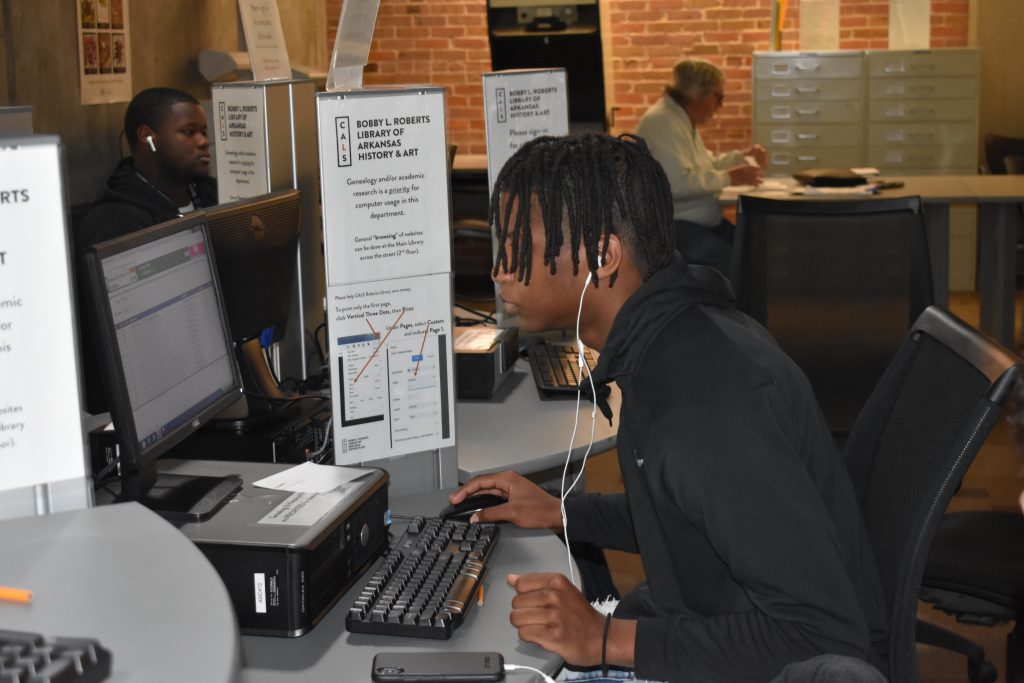
“We’re following the historical progression of Highway 365, which passes through Wrightsville, Hensley, and Sweet Home,” Harris said.
Students were looking at maps and boxes of family photos from the archives—some students wearing white gloves, all handling the materials carefully.
Student McKinsey G. found her own sense of meaning and purpose in the project. “We thought the project was just about a highway, but we found out that there was a fire in Hensley that killed a lot of people,” McKinsey said. “We wanted to bring in something about our history that people don’t know because it’s not talked about a lot. So, we will be the ones to tell this story.”
Harris explained other ways students are personally connecting to the past. “Some students are putting in personal pieces about their family lineage in the area, so they can compare what they see now along the highway to what their parents or grandparents saw.”
Aniceto R. is another Mills student who found the material engaging. “It’s pretty interesting to look back at the history of the time itself. There’s a lot of racial history, and the town [of Hensley] has changed a lot physically and politically.”
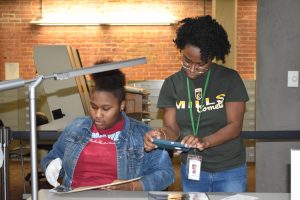
Larry M., student director of the team, had set his goal for the day. “As the director, I’ve been trying to get everyone on the same page so we’ll all be looking at the same thing,” he said. “It’s definitely a unique experience. I’ve never done anything like this before.”
The Highway 365 research project will have a life that extends far beyond the classroom. “We’re going to make a video documentary for the alumni association, and we’ll also enter it in student film contests,” Harris said.
A week later, the Research Room staff hosted a group of students from Horace Mann Arts & Science Magnet Middle School. This group toured with their teacher Kelli Kamanga as part of a project supported by the Arkansas Declaration of Learning program. Guided by CALS staff genealogist Rhonda Stewart, the students learned many different ways to research their own family history.
Stewart is skilled at talking to young people and pulling them into her field of expertise. As she encouraged them to take down city directories from the shelves, she issued a uniquely compelling instruction: “Look up your own family’s name.”
Those familiar with middle school teaching know how rare it is to see an entire group of young students fully absorbed in an academic task, without distraction or fidgeting. This group was rapt, paging through the directories, looking quietly over one another’s shoulders, and pointing out their family names.
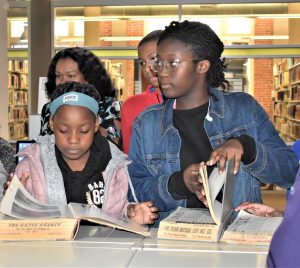
The perfect match of Stewart as expert guide with abundant, relevant primary sources worked to awaken young interest. Stewart’s down-to-earth, humorous delivery brought the students to the brink of genealogy’s mirror, and once they had walked up and opened their minds, all they had to do was look into the city directories to see their own images in a way they would never forget.
The students would go on to learn about many other genealogy resources that day, but it was the initial moment of connection with their own names that made the visit matter to them.
Stewart knows what this will mean for the students in the future, based on her own moments of connection with history as a young person. “Genealogy gives the students a reason to see their families in a light that places them in current history as well as in the past,” she explained. “When I first learned about the Civil War, I had no connection to it—it never interested me as a topic. Then I learned that I had relatives involved, because one of my ancestors served. That changed the way I viewed the Civil War.”
Teachers or homeschoolers can schedule student genealogy or research tours with CALS genealogists by calling the Research Room at 501.320.5700 or emailing arkinfo@cals.org. Beginning genealogy sessions for adults on “Finding Family Facts” are free and open to the public and take place every second Monday at the CALS Roberts Library Research Room at 3:30 p.m. and once a month at a rotating CALS branch location. View the schedule at https://robertslibrary.org/events-classes/.



